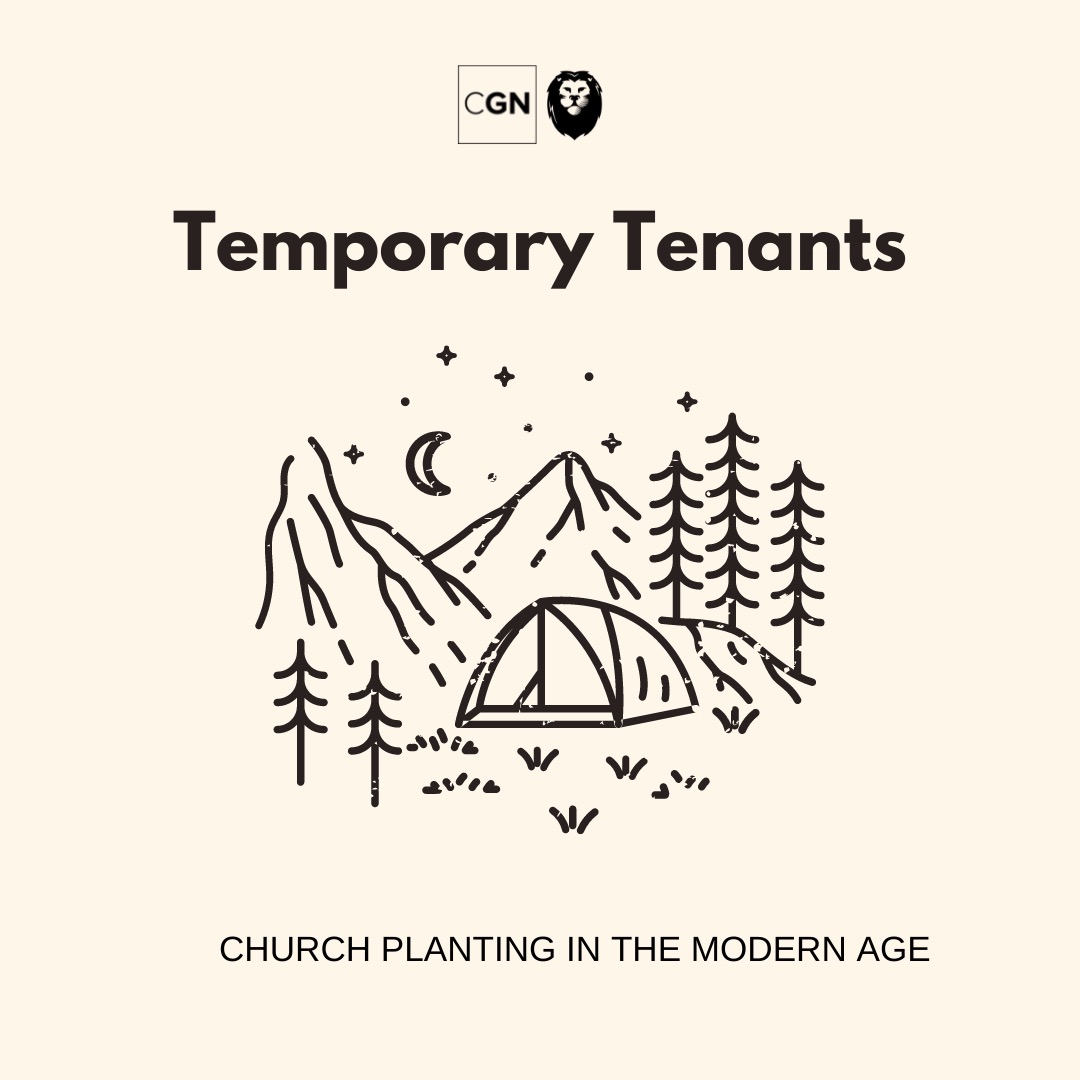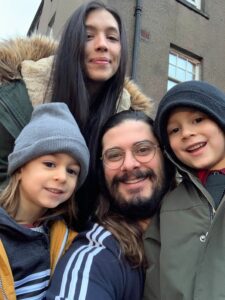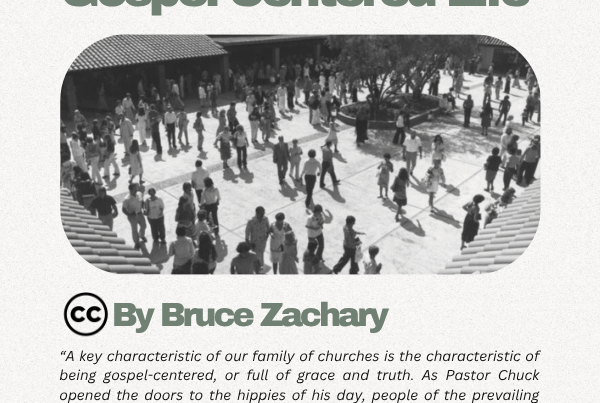
 A bit about me:
A bit about me:
My name is Cody Nunes. I am blessed to have an amazing wife, Karissa Valadez, and two beautiful boys, Theophilus and Mateas. We are currently living in North East Scotland near the city of Aberdeen. As a family, we made the decision to move here in hopes of planting a church.
We have been living here for nearly two years and are still breaking into the community, scratching at the surface of cultural understanding, and preparing to do cross-cultural ministry and church planting. Our desire is to see God magnified in whatever season we are in and wherever we find ourselves.
At the recent 2022 CGN International Conference, my buddy Aaron Salvato (CGN Podcasting director) and I were brainstorming about a podcast around the concept of Church planting. I decided to run with the vision and call the show “Temporary Tenants.” Aaron asked me to share a little bit about my new show, so here it goes!
A bit about the podcast:
When I begin my show, I always ask every guest two questions. The first: What is your first experience in church planting? The answers will vary from guest to guest. They are as unique as the person sitting on the other end of the microphone. Beautiful in their simplicity; precious in their complexity.
Ultimately, it gives some context to who the person is, what they have done, and how they did it. It establishes a framework for further conversation in the realm of church planting. I have been inspired by the stories of the brave, faithful, and diligent people who have stepped into this incredible calling.
The show is really basic in its idea: people who love Jesus, ministry, and church planting sit down and have a conversation surrounding those topics. I desire to be transparent, not only in the good and the successful aspects of this venture, but also in the struggles and the failures.
The reality is that we live in a world that is in desperate need of the gospel. In church planting, we have the opportunity to effect change, reaching practically into all communities through the Gospel. I firmly believe that the stories of those who have stepped out in radical obedience should compel us towards a deeper, more whole grasp of God’s love and care for His people. God’s redemptive plan for the world is at work in the hearts of the missionary, church planter, pastor, and congregant.
The podcast is called Temporary Tenants. It is a play on Paul’s words in 2 Corinthians 5. We are like tents, i.e., temporary, not eternal. We live and abide, though we sigh for the eternal home that is our inheritance. Yet, while we live in the temporal, we can effect the eternal. Church planting, at its core, is a way to effect the eternal. It is intentionally stepping into a community and representing the God who loves them.
Throughout the podcast, my guests and I cover topics like cross-cultural ministry, missions, ecclesiology, methodology, missiology, and the future of what church planting could look like. No matter what guest I have on, regardless of denomination or organisation, we share the same desire, i.e., to see church bodies established and people ushered into the Kingdom of God.
The second question that I like to ask guests of the podcast is: Why do we need more churches? Though it might be unspoken, I often think that this is something that people are asking internally when they see a new church planted. From an American and Western context, looking around we see churches on every corner. So the question is not unwarranted, and without answering that question, we are left with an incomplete understanding of the mission of God.
The answers I receive from guests vary from theological to practical. In essence, I feel the answer is beautifully simple:The church is God’s chosen design for His children to gather together, worship collectively, and minister the gospel to their communities. If that is what church is, then every community needs more churches. Gospel-centered, Christ-magnifying churches.
The church is not a business or an industry. It is not immaculately crafted buildings and aesthetically pleasing set designs. When we take a moment to think about the book of Acts and the early church, it does not give a business plan, church mapping, or franchising model to follow. It was established in the Spirit, and it was driven by the Spirit. Often I think we can be in our churches and say, “Here we are gathering, worshiping, and reaching out.”
Are we really though? I don’t want to paint with broad strokes, but if the outreach we are doing in the community is a Harvest Fest, Easter Service, Christmas Eve Special, or Food Bank, most of those are offered to the outer community but are really intended for the church community. Our gathering and our worship are what we do collectively with our brothers and sisters; our reaching out to our communities should be intentional. It should be going outside of what would be perceived as “normal service” and stepping into a radical evangelical mentality of engaging the community where they are.
I had the privilege of talking with Tyler St. Clair, who works with Acts29 and is the Director of Church In Hard Places and Urban Development. He also pastors a local church in Detroit called Cornerstone Church.In our conversation he spoke on this direct issue. We discussed his experience planting Cornerstone in the midst of a global pandemic and radical racial tensions. What stood out to me was Tyler’s committed intentionality in building up the church and guiding them to be more effective in engaging their communities.
They continued serving their outer community with dedication while still strengthening the body of Christ. This is what the church in the book of Acts looked like; a collective of believers from different cultures and economic statuses gathering in their home church seeking to be made more like Christ, in order to effectively exemplify Him to the broken around them. Tyler’s church covers a gambit of cultures and economic standing. In a time that lead to so much in fighting and division within the church, Tyler was willing to face the situation with boldness and compassion. He was willing to do the internally work, so that the external mission could remain strong.
To not give church planting the focus and attention it requires is to miss out on the blessings that come with it: seeing new believers walk in faith, marriages restored, broken lives made whole, and the lost redeemed. This is what the eyes of the church planter are privileged to witness. This is what the heart of God desires.
There are varying types of church planting models: plant and pastor, apostolic, big launch days vs. no launch day, bible studies in coffee shops, buying buildings, house churches, planting teams vs. one or two called individuals; every strategy is unique, and each has its own strengths and weaknesses. In conversations with men and women who are far more experienced in this area than I, we get to explore those strengths and weaknesses. We get to have an open dialogue about the realities of this calling.
These different models and styles can be implemented practically in more than just the initial stages of church planting. You may find yourself in a well-established church, but that does not discount the value of the lessons and applications that can be found in the radical faith displayed in the church planter’s stories.
The hope I have for any listener is that they might not listen passively to these recounts of God’s faithfulness and funny stories of mishaps. I hope that it will stir something up within us and encourage our hearts in this truth: that what God did through them, He desires to do with us. In whatever season we are in, in whatever context we find ourselves in, God’s mission is still the same. “Go into all the world and preach the gospel, making disciples.” Sitting in awe of the fruitfulness of past works of God is good. We should reflect on and give worship for what he has done in the past, but we need to remember that God is not done yet.
The future of the podcast:
Honestly, when I think about what the future of the podcast looks like, I am excited. I want to share stories, have nuanced conversations, and continue to explore how I can be a better church planter and follower of Jesus. I would really love to see church planters coming together to encourage one another and carry the burden together, as well as create a more open space for them to be transparent about the struggles that they are facing. I know for my context, living in a different country with very little friends and no extended family is hard. Leaving everything you know and everyone you love is a heavy price, and it weighs on you. The unspoken and spoken expectations of ourselves and others, the financial burden, creating community, shedding identity, these are all real things that the church planter experiences. These are the burdens we carry. But we do not need to carry them alone.
Finding encouragement is so important. It can make the difference between staying the course or leaving the field. Statistically, a missionary/church planter will leave the mission field/church plant for one of three reasons: Interpersonal Relationships, Health, or Financial Strain. In all of these things, there is a thread that runs throughout them all—Loneliness. When we feel isolated in our relationships, heath, and finances it can become crippling to the work that God has called us to. Feeling the pressures of all these hardships and perceiving that there is no help or hope is a snare in which the enemy traps many Christians and especially church planters.
In Colossians 1:9-14 Paul encourages and prays over the believers that are facing some serious hardship. Relationships in their communities, doubt in their faith, the struggle of a collapsing economic system. Paul encourages them to continue pressing on, to continue in the faith they know to be true. My hope is that we can do this for one another. Obviously, this does not just apply to the church planter, but the Christian as well. We all are dealing with something. Whether minor or major we all have to navigate difficulties that come up in our day to day lives, and ministry presents its own unique set of challenges that we have to face. We are told to cast our cares before the Lord, we are also told to carry one another burdens. That is why I want to create an open, encouraging, and collective community around Temporary Tenants to bear one anothers’ burdens and exhort each other to continue walking in the calling of church planting. No matter what circumstance you are in or where you are at in your journey of church planting, I hope you know that God is with you and thst it is through Him, that the work will be done.
If you or someone you know is interested in church planting, please feel free to reach out to me at temporarytenant@44.229.177.13. You can listen to the Temporary Tenants podcast wherever you listen to your podcasts. I hope you will tune in. Until then, I hope and pray that you will continue to magnify and glorify the Lord in whatever season you find yourself in.










